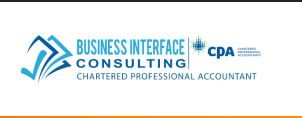Preparing for Tax Season: A Comprehensive Guide for Winnipeg Residents
BF
Understanding Tax Obligations
As tax season approaches, it's crucial for Winnipeg residents to understand their tax obligations. The Canadian tax system requires individuals to report their income and pay taxes annually by April 30th. Whether you're a first-time filer or a seasoned taxpayer, staying informed about changes in tax laws and regulations can help you avoid unnecessary penalties and ensure you're maximizing your potential refunds.
In Winnipeg, taxpayers need to consider both federal and provincial tax rates. It's important to be aware of any deductions and credits available to you, as these can significantly reduce your taxable income. For example, the Canada Child Benefit and the Climate Action Incentive are federal credits that may apply to many residents.

Gathering Necessary Documents
Preparation is key when it comes to tax filing. Begin by gathering all necessary documents, such as T4 slips from employers, T5 slips for investment income, and any receipts for deductible expenses. Keeping a well-organized record of your financial documents throughout the year can make the tax filing process much smoother.
If you have multiple income sources, such as freelance work or rental income, ensure you have documentation for these as well. Properly reporting your total income is essential to avoid potential audits and penalties from the Canada Revenue Agency (CRA).
Utilizing Tax Software and Professional Help
Many Winnipeg residents find it beneficial to use tax software for filing their taxes. These programs are designed to guide you through the process step-by-step and often include updates on the latest tax laws. However, if your tax situation is complex, or if you lack confidence in filing your own taxes, seeking assistance from a professional tax preparer or accountant can be a wise investment.

Maximizing Deductions and Credits
To reduce your tax liability, focus on maximizing deductions and credits you're eligible for. Common deductions include contributions to Registered Retirement Savings Plans (RRSPs) and tuition fees for students. Credits such as the GST/HST credit can also offer significant savings.
Homeowners may qualify for deductions related to home office expenses, especially if they've been working remotely. Ensure you have proper documentation to support these claims, as CRA may request proof during assessments.
Planning for Future Tax Seasons
After filing your taxes, take some time to evaluate your financial situation and plan for the coming year. Consider setting up a system for tracking expenses and income more efficiently. Using digital tools or apps can streamline this process, making next year's tax season less daunting.

Staying Informed and Updated
Tax laws and regulations can change frequently. Stay informed by regularly checking updates from the CRA and provincial tax authorities. Subscribing to newsletters or following reputable financial blogs can also keep you updated on important changes that may affect your tax filings.
By staying proactive and well-prepared, Winnipeg residents can approach tax season with confidence. Whether you're filing on your own or seeking professional assistance, understanding your obligations and opportunities for savings are key components of successful tax management.
